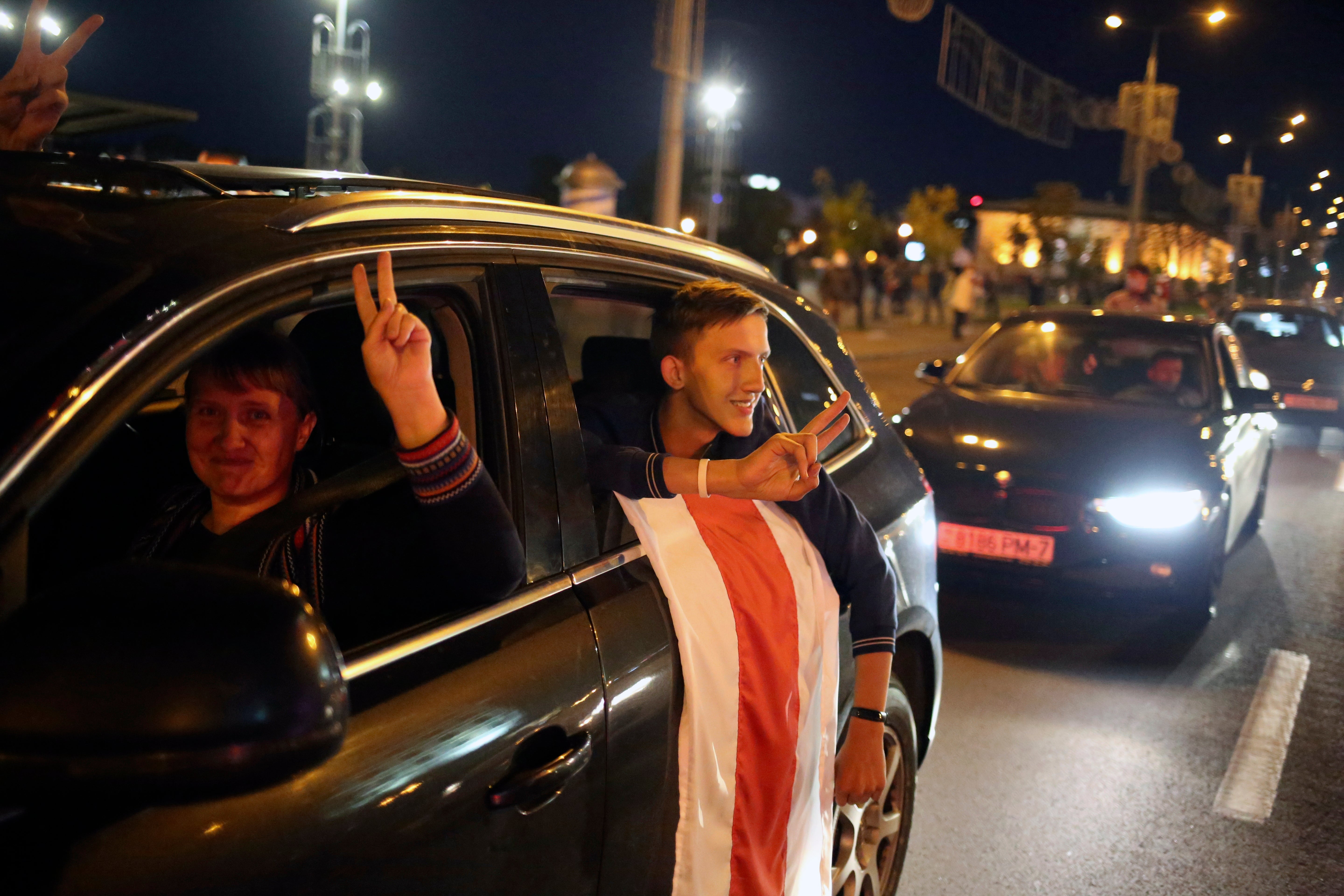Over 360 more detained in Belarus in protests against leader
Over 360 people have been detained in Belarus during protests against the country’s authoritarian president, who was unexpectedly sworn in to his sixth term in office after an election opposition says was rigged

Your support helps us to tell the story
From reproductive rights to climate change to Big Tech, The Independent is on the ground when the story is developing. Whether it's investigating the financials of Elon Musk's pro-Trump PAC or producing our latest documentary, 'The A Word', which shines a light on the American women fighting for reproductive rights, we know how important it is to parse out the facts from the messaging.
At such a critical moment in US history, we need reporters on the ground. Your donation allows us to keep sending journalists to speak to both sides of the story.
The Independent is trusted by Americans across the entire political spectrum. And unlike many other quality news outlets, we choose not to lock Americans out of our reporting and analysis with paywalls. We believe quality journalism should be available to everyone, paid for by those who can afford it.
Your support makes all the difference.Over 360 more people have been detained in Belarus during protests against the country s authoritarian president, who was unexpectedly sworn in to his sixth term in office after an election the opposition says was rigged.
Thousands of Belarusians took to the streets of the capital of Minsk and other cities on Wednesday evening, protesting the unannounced inauguration of President Alexander Lukashenko that took place in the morning. Police fiercely dispersed the crowds; in Minsk, officers used truncheons and water cannons, leaving dozens injured.
The country's Interior Ministry said Thursday that 364 people were detained the previous night, including 252 in Minsk. The vast majority of them remain in custody, awaiting a court hearing.
Despite the crackdown, rallies continued Thursday morning, with hundreds in Minsk forming human chains of solidarity in parts of the city and obstructing road traffic by driving slowly or stopping altogether, honking in protest.
Lukashenko's inauguration hadn't been announced in advance and came as a surprise for many after nearly seven weeks of mass protests against his disputed reelection. Opposition leaders dismissed the ceremony that had been prepared in secrecy as “a farce”, and many European officials refused to recognize Lukashenko as the country's legitimate president.
Lukashenko on Thursday argued that the inauguration wasn't prepared in secret and bristled at Western criticism.
“You know, about 2,000 people, together with the military, were invited to the inauguration. It is practically impossible to keep it secret,” he was quoted by the state news agency Belta as saying.
“You know, we didn't ask anyone to recognize or not recognize our election, the legitimacy of the newly elected president ... the important thing is that it's in accordance with the Constitution,” Lukashenko said.
Lukashenko, a 66-year-old former state farm director, has run Belarus, an ex-Soviet nation of 9.5 million, with an iron fist for 26 years. Official results of the country’s Aug. 9 presidential election had given him 80% of the vote, with his strongest opponent, Sviatlana Tsikhanouskaya, getting 10% support. But both opposition members and some poll workers say the vote was rigged.
Tsikhanouskaya has not accepted the outcome of the election as valid, and neither have the thousands of her supporters who have been demanding Lukashenko’s resignation at daily rallies all over the country for nearly seven weeks in a row.
The United States and the European Union condemned the election as neither free nor fair and criticized the violent police crackdown on post-election protests in Belarus. The EU has been pondering sanctions against the Belarusian leadership, but failed to agree on imposing them this week.
Anti-Lukashenko protests have rocked the country daily since the election, with the largest rallies in Minsk attracting up to 200,000 people. In the first days of protests, police used tear gas, truncheons and rubber bullets to disperse crowds. Several protesters died, many were injured and nearly 7,000 were detained.
Amid international outrage over the violent suppression of the protests, Belarusian authorities switched to prosecuting top activists. Many members of the Coordination Council that was formed by the opposition to push for a transition of power have been arrested or forced to leave the country.
This week the crackdown on street demonstrators has intensified as well, with police detaining hundreds and injuring many.
The country's Prosecutor General Andrei Shved on Thursday threatened protesters with “significant” fines and said authorities are seeking to adopt stricter punishments for parents “who are involving children in protest actions."
Prosecutors in Minsk have already handed 140 warnings to families that took children to anti-government rallies.
__
Daria Litvinova in Moscow contributed to this report.